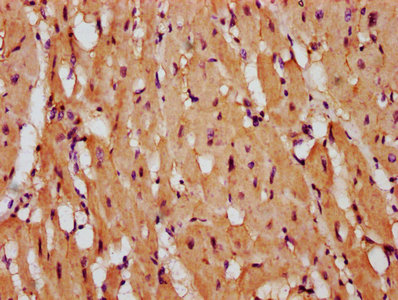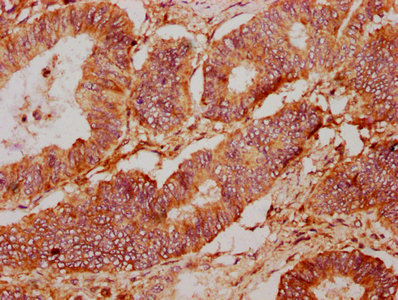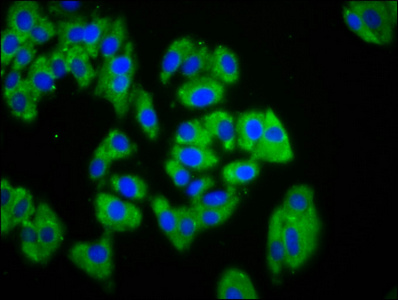Full Product Name
Rabbit anti-Homo sapiens (Human) PTPRK Polyclonal antibody
Alternative Names
dJ480J14.2.1 antibody; DKFZp686C2268 antibody; DKFZp779N1045 antibody; OTTHUMP00000017180 antibody; OTTHUMP00000017181 antibody; OTTHUMP00000017182 antibody; OTTHUMP00000017187 antibody; OTTHUMP00000040306 antibody; Protein tyrosine phosphatase kappa antibody; Protein tyrosine phosphatase kappa precursor antibody; Protein tyrosine phosphatase receptor type K antibody; Protein tyrosine phosphatase receptor type kappa antibody; Protein-tyrosine phosphatase kappa antibody; PTPK antibody; PTPkappa antibody; Ptprk antibody; PTPRK_HUMAN antibody; R PTP kappa antibody; R-PTP-kappa antibody; Receptor type tyrosine protein phosphatase kappa antibody; Receptor-type tyrosine-protein phosphatase kappa antibody
Immunogen
Recombinant Human Receptor-type tyrosine-protein phosphatase kappa protein (589-749AA)
Immunogen Species
Homo sapiens (Human)
Conjugate
Non-conjugated
The PTPRK Antibody (Product code: CSB-PA613588LA01HU) is Non-conjugated. For PTPRK Antibody with conjugates, please check the following table.
Available Conjugates
| Conjugate |
Product Code |
Product Name |
Application |
| HRP |
CSB-PA613588LB01HU |
PTPRK Antibody, HRP conjugated |
ELISA |
| FITC |
CSB-PA613588LC01HU |
PTPRK Antibody, FITC conjugated |
|
| Biotin |
CSB-PA613588LD01HU |
PTPRK Antibody, Biotin conjugated |
ELISA |
Purification Method
>95%, Protein G purified
Concentration
It differs from different batches. Please contact us to confirm it.
Buffer
Preservative: 0.03% Proclin 300
Constituents: 50% Glycerol, 0.01M PBS, pH 7.4
Tested Applications
ELISA, IHC, IF
Recommended Dilution
| Application |
Recommended Dilution |
| IHC |
1:200-1:500 |
| IF |
1:50-1:200 |
Storage
Upon receipt, store at -20°C or -80°C. Avoid repeated freeze.
Lead Time
Basically, we can dispatch the products out in 1-3 working days after receiving your orders. Delivery time maybe differs from different purchasing way or location, please kindly consult your local distributors for specific delivery time.
Usage
For Research Use Only. Not for use in diagnostic or therapeutic procedures.









